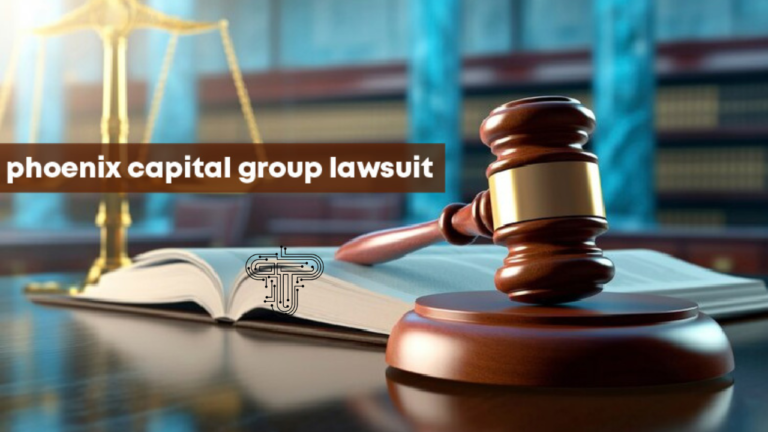Why You Might Need A Massachusetts Auto Repossession Lawyer Today
In an economy where inflation rates change constantly, wage stagnation is rife and debt burdens grow ever larger, more Americans are slipping behind on car payments.
Delinquencies in auto loans, according to the Federal Reserve Bank of New York, have hit their highest since 2009. Although going to repossession is a lender’s last resort, the process typically takes place quickly and can potentially skirt state laws that safeguard consumers. For Massachusetts residents, knowing your rights according to the law is not a choice – it’s crucial.
Most often, car owners are unaware that their vehicles will be repossessed until the tow truck arrives. Lenders do have the right to repossess property under specific circumstances, but there are obvious rules about when and when a repossession can occur.
These laws differ from state to state, and in Massachusetts, at least, they favor consumers — provided the consumer follows a set of protocols.
Knowing your rights can mean the difference between keeping your car and losing it unjustly. That’s why the demand for legal aid is growing.
Understand What Laws Protect You From an Illegal Repossession
If your car was taken away without proper notice and due process, you may be eligible for legal recourse. A diligent Massachusetts auto repossession lawyer can determine whether the repossession process was conducted within the confines of law in a state (Massachusetts) that offers stronger consumer protection than many others.
Under Massachusetts General Laws Chapter 255B, lenders must also give a right to cure notice before they repossess your vehicle. This letter leaves the borrower 21 days to pay in arrears or risk losing their collateral completely. Failing to provide this curing period could make your repossession illegal. In addition, the repossession cannot itself be a breach of the peace. In other words, it must not involve violence or threats, and there can’t be any unlawful entry.
2. Repossession Rates Are Climbing — Especially for the Subprime Borrower
Massachusetts’s rates are exceptionally high due to expensive insurance rates, urban job uncertainty, and a lag in recovery from the pandemic.
Borrowers with subprime credit scores (below 620) are particularly at risk. Subprime delinquencies are 30% higher than they were last year, based on Experian’s State of the Automotive Finance Market report.
- Targeting lower-income residents: Many repo actions are disproportionately affecting low-income areas where access to alternative transportation is minimal. This makes it all the more imperative that we resolve this situation in a timely and lawful manner.
- Technology speeds repossessions: From GPS trackers to automated loan systems, lenders are beginning the repossession process with minimal human interaction. Some borrowers — often with no more than a name and address on file at the lender — say they have not even missed any payments, because of clerical errors.
- Lawyers can get in early: Attorneys help protect against lenders acting beyond what the law allows. Early intervention can halt a repossession in its tracks, particularly if documents were bungled or notices weren’t served correctly.
What Happens After Repossession & Why Time Is of the Essence
When a vehicle is repossessed, the clock starts ticking. In Massachusetts, a post-repossession notice detailing how and when the car will be sold must also be sent by lenders. That’s usually in the form of a public auction or private sale.
But the sale can be contested in court if the notice is unclear or untimely.
- Deficiency balance lawsuits: If your car sells for less than what you owe, a lender can sue to make up the difference — known as a deficiency balance. Courts can void, or lower this figure, if the repossession process was improper.
- Credit damage: Repossession has a severely negative impact on your credit score. A lawyer could potentially stop it, and the event wouldn’t appear on your credit report at all.
- Personal property: Repo agents in Massachusetts can’t keep or destroy personal items left behind in your car. Your attorney can bring them back into the process.
Signal Warnings: You Are Being Targeted For Repossession
Warning signs that your vehicle is in trouble:
- If a lender has started calling multiple times, even if you’ve made partial payments, they may be getting ready to step up the pressure.
- Demands for the “voluntary surrender” of your vehicle.
Repossession agents tend to scout an area before they move in. If there are strange vehicles lurking around or someone taking pictures, your car might be in the crosshairs.
If you encounter any of these signs, it is time to consult a lawyer. Timing is everything here, and in many cases, there exists pre-emptive laws that will keep the worst from happening.
Repossession Laws In Massachusetts
While there are many states where the consumer has little recourse if the process is bungled, Massachusetts favors consumers who have been wronged.
- Right to cure (21 days):
Lenders have to issue borrowers 21 days’ notice, and the total obligations must become overdue before repossession.
- Written post-repossession notice requirement:
- his has to describe the terms of the impending sale and how a borrower can get their car back.
- Opportunity to redeem the vehicle:
Even after your car is repossessed, you might still be able to reclaim it by paying off the entire balance due (usually within a short period) plus any repossession fees and collection costs that have accrued.
- Strict “breach of peace” clause:
Repossession cannot be violent, menacing, or harassing. Failing to do so can result in voided repossession and possible damage.
Conclusion
Repossession may disrupt your work life; going without a car can be tough in areas with inadequate public transportation. If you’re behind on your payment or have already lost the car, don’t assume it’s too late.
There is more than legal backing behind this plan — it’s often the only recourse to hold lenders accountable and regain what’s yours in principle.







